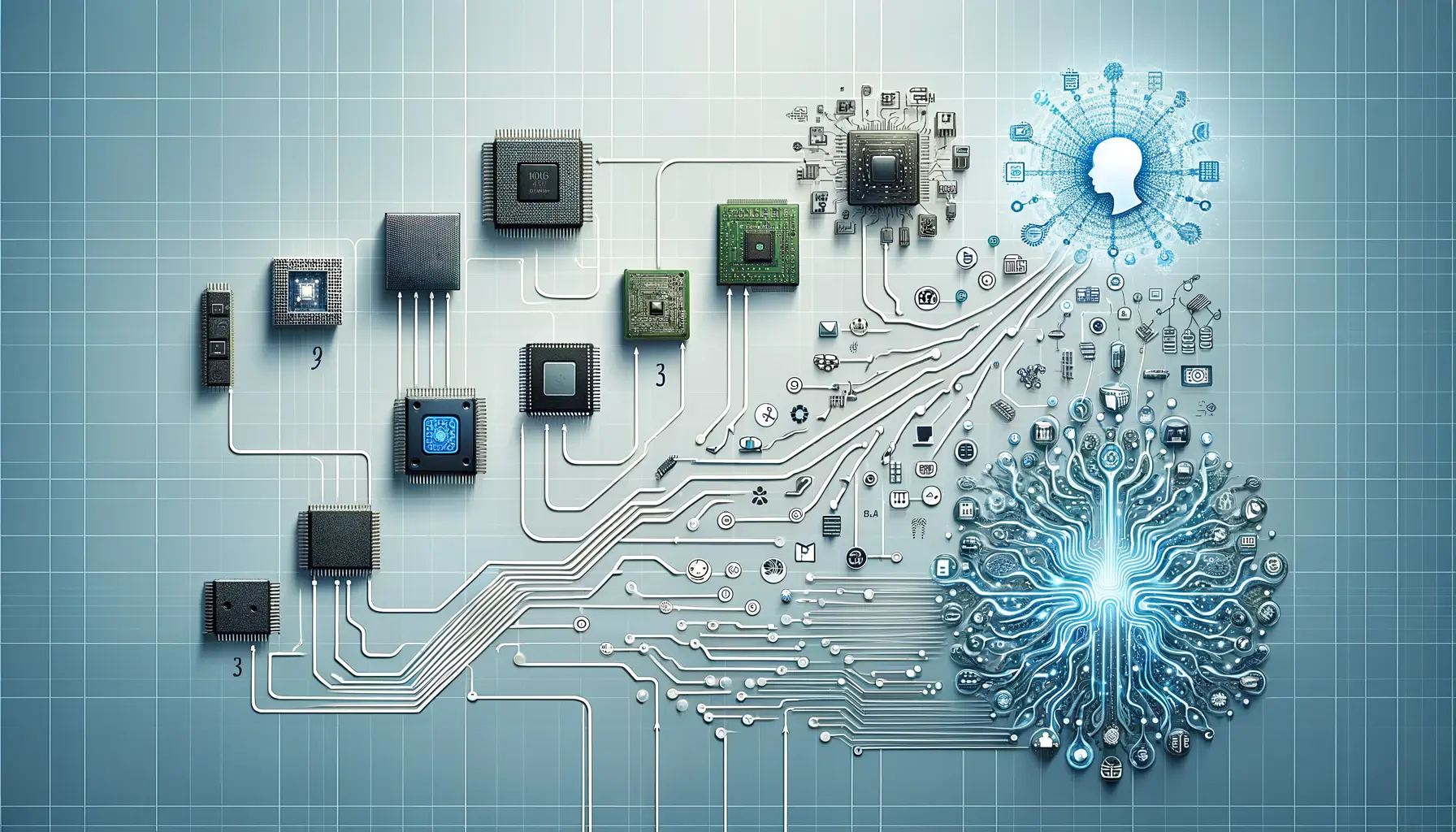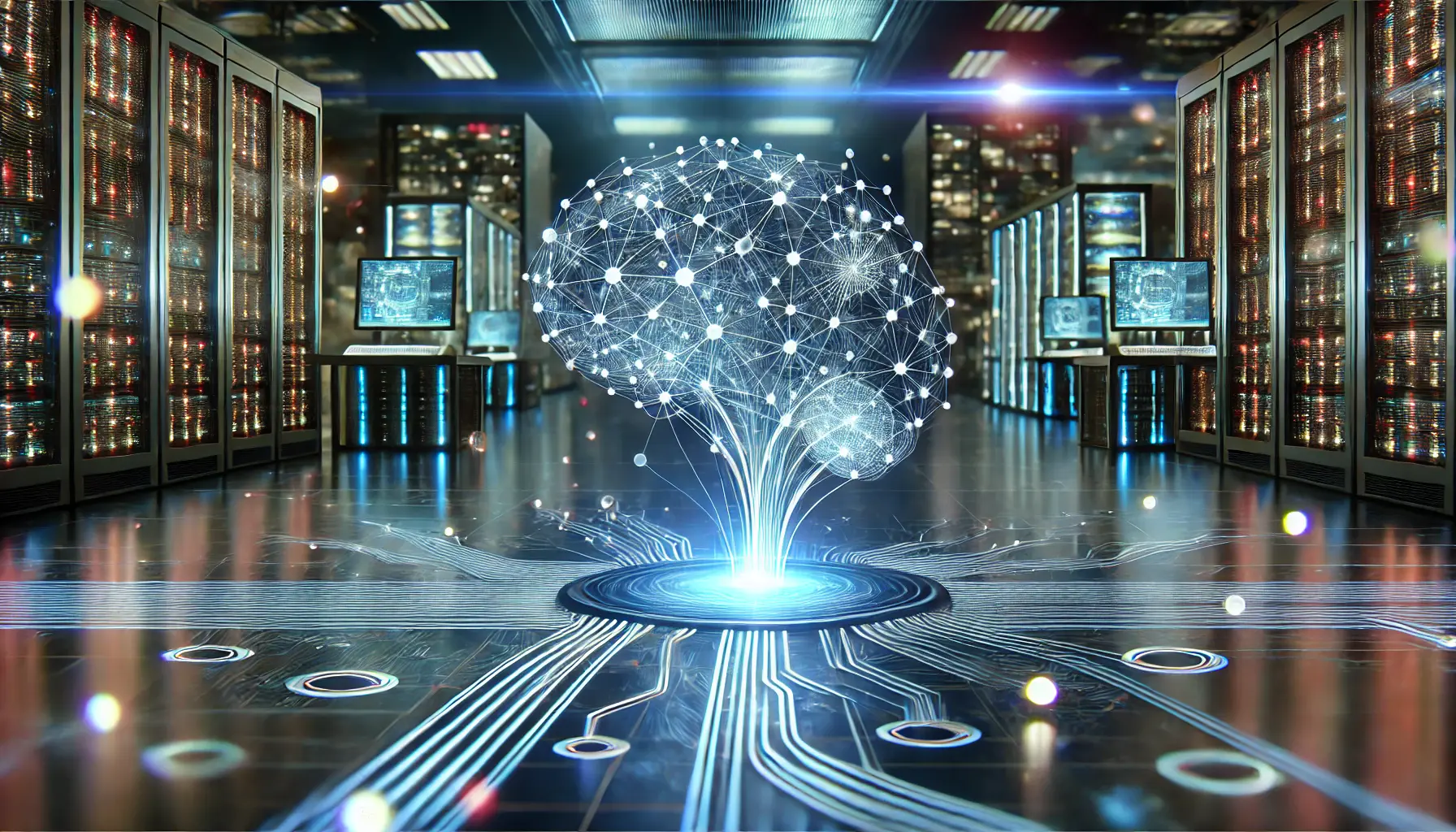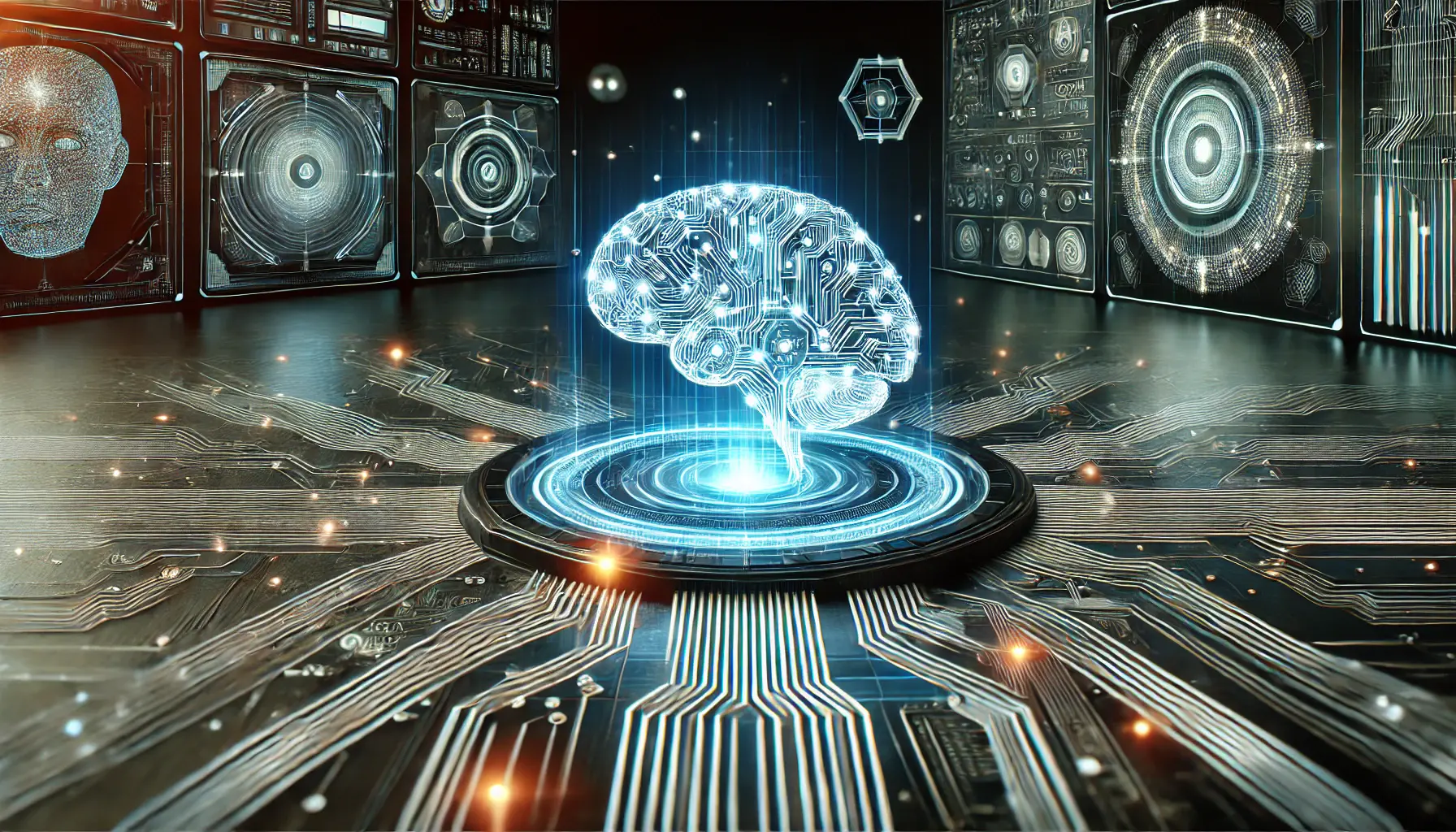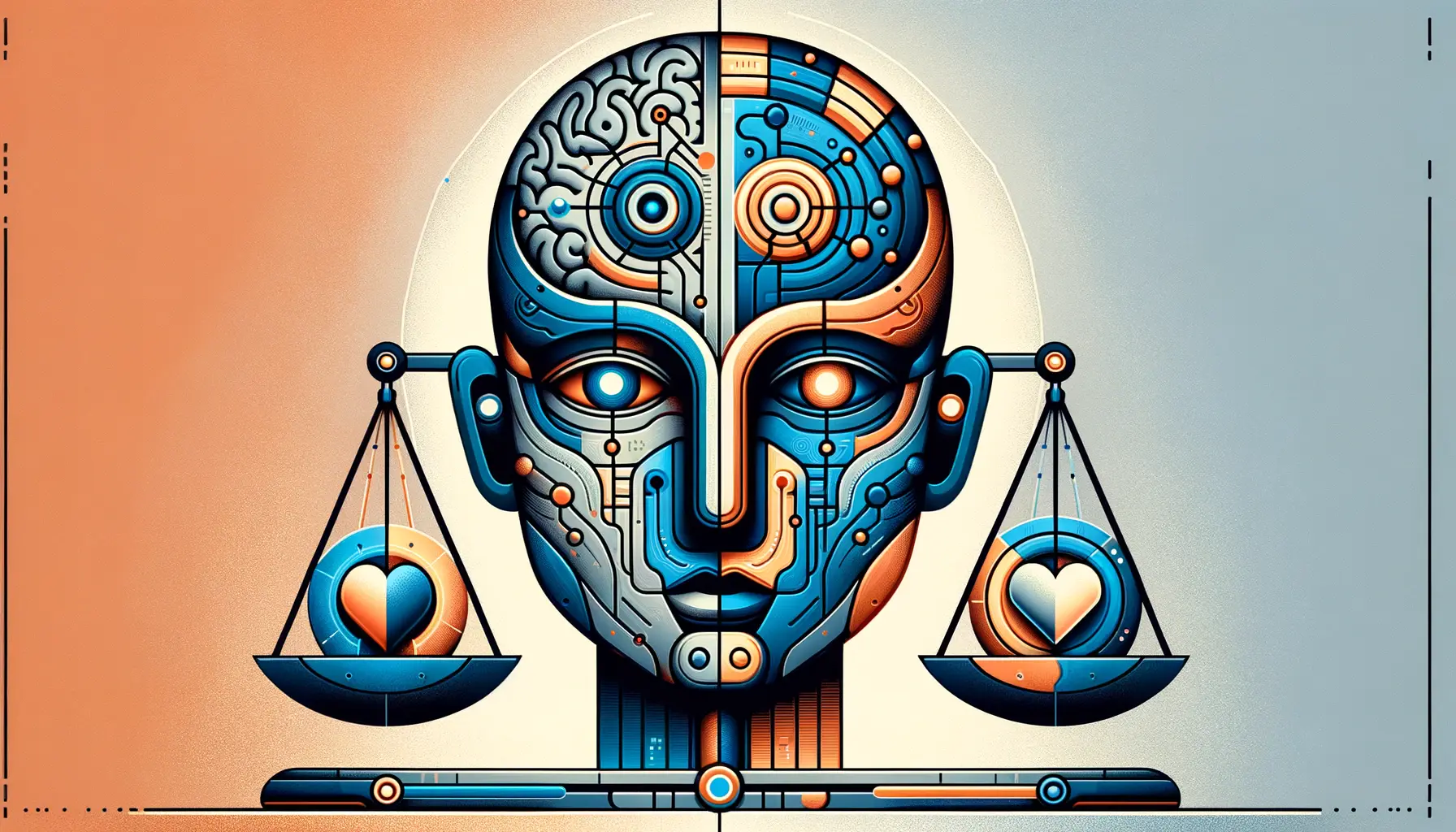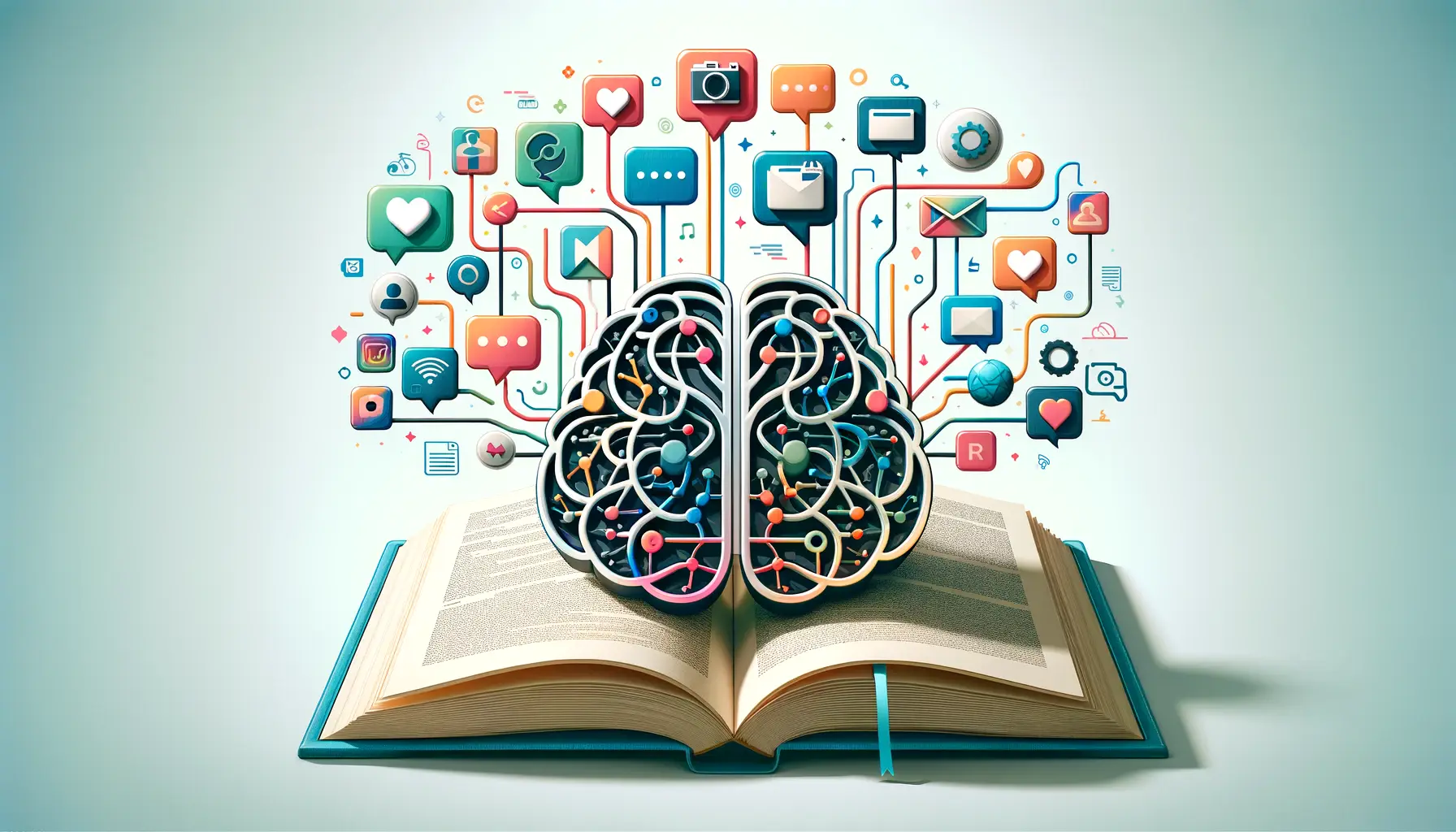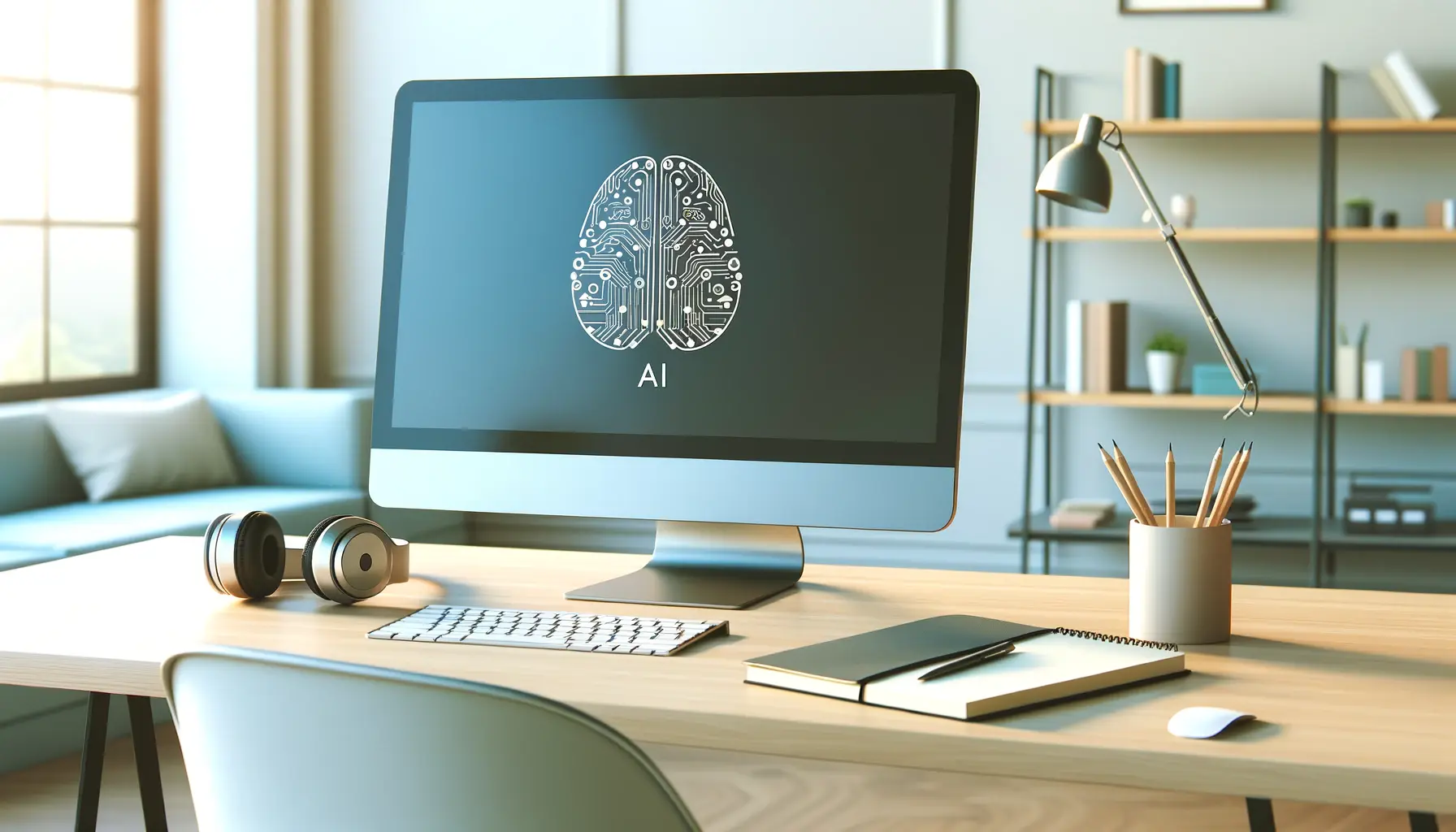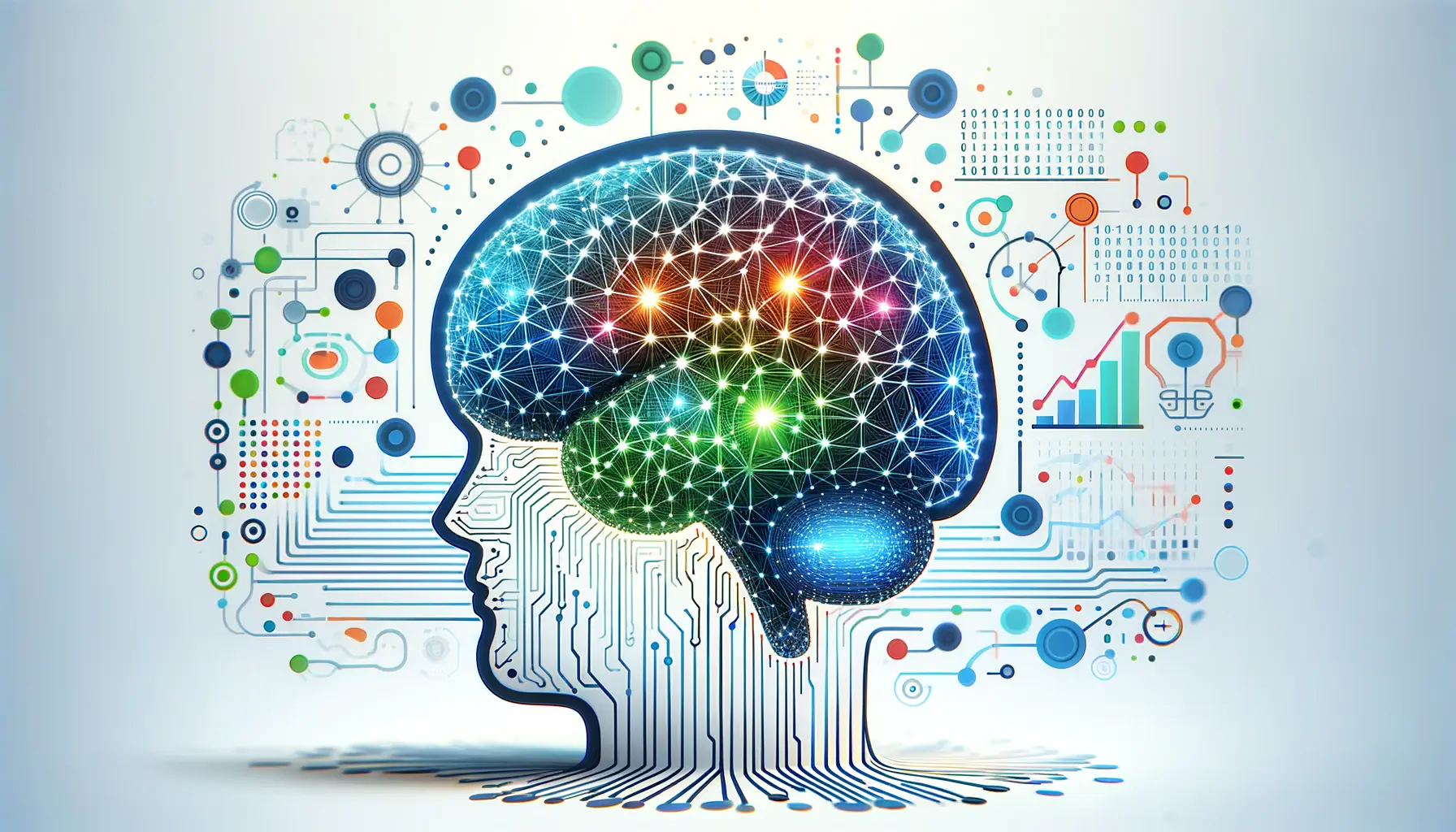The realm of artificial intelligence (AI) has witnessed a transformative journey, marked by groundbreaking advancements and innovations.
Among the luminaries of this technological revolution is Claude AI, a name that has become synonymous with the evolution of AI.
This article delves into the intricate development, capabilities, and impact of Claude AI, offering a comprehensive exploration of its journey from inception to its current state.
As we navigate through the evolution of Claude AI, it’s essential to understand its foundation and the objectives it aims to achieve.
Developed by Anthropic, Claude AI stands as a testament to the progress in natural language processing, deep learning, and cognitive computing.
Its development reflects a concerted effort to create an AI that not only mimics human-like intelligence but also enhances user interaction, decision-making, and creative processes across various sectors.
- Origins and Development
- Applications Across Industries
- Challenges and Limitations
- Advancements in Natural Language Processing
- Impact on Society and Industry
- Future Directions and Potential
- Integrating Claude AI into Everyday Life
- Conclusion: The Evolutionary Journey of Claude AI
- Frequently Asked Questions About The Evolution of Claude AI
Origins and Development
Foundation of Claude AI
The inception of Claude AI can be traced back to the ambitious vision of its creators at Anthropic.
Recognizing the potential of AI to revolutionize the way we interact with technology, the team embarked on a mission to develop an AI system that could understand and generate human-like text.
This vision was fueled by the desire to overcome the limitations of existing AI models and to push the boundaries of what AI could achieve in terms of natural language understanding and interaction.
The development of Claude AI was marked by extensive research and experimentation in natural language processing (NLP) and machine learning algorithms.
By leveraging vast datasets and sophisticated algorithms, Claude AI was designed to learn, adapt, and make intelligent decisions in real-time.
This iterative process of development underscored the team’s commitment to creating an AI that could truly understand and respond to human queries with unprecedented accuracy and relevance.
Technological Breakthroughs
One of the hallmark achievements in the evolution of Claude AI was its advanced natural language processing capabilities.
Claude AI’s ability to parse complex queries, understand context, and generate coherent and contextually relevant responses set it apart from its predecessors.
This breakthrough was achieved through the integration of deep learning techniques and neural networks, enabling Claude AI to analyze and interpret vast amounts of data efficiently.
Another significant advancement was in the area of cognitive computing.
Claude AI was engineered to mimic human cognitive abilities, such as understanding context, reasoning, and learning from experience.
This not only enhanced its interaction with users but also enabled it to perform tasks that required a higher level of cognitive understanding, such as sentiment analysis and creative content generation.
Claude AI’s development represents a significant leap in AI technology, combining advanced NLP, deep learning, and cognitive computing to create a more human-like and interactive AI system.
Applications Across Industries
The versatility of Claude AI has enabled its application across a wide array of industries, revolutionizing how businesses and individuals interact with AI technology.
From healthcare to finance, and from education to customer service, Claude AI has demonstrated its ability to enhance efficiency, accuracy, and user experience.
This section explores some of the key sectors where Claude AI has made a significant impact.
In the healthcare sector, Claude AI has been instrumental in transforming patient care and medical research.
Its applications include:
- Diagnosis assistance, where Claude AI analyzes patient data and medical histories to support healthcare professionals in making more accurate diagnoses.
- Personalized treatment plans, utilizing AI to tailor treatment strategies based on individual patient data, significantly improving patient outcomes.
- Medical research, where Claude AI processes vast amounts of scientific literature to identify potential treatment methods and new areas of study.
In the realm of finance, Claude AI has introduced new levels of efficiency and security, with applications such as:
- Fraud detection, where its ability to analyze transaction patterns helps identify and prevent fraudulent activities.
- Market analysis, providing insights into market trends and helping investors make informed decisions.
- Personalized financial advice, offering customized investment strategies based on individual financial goals and risk tolerance.
The education sector has also benefited from Claude AI’s capabilities, particularly in:
- Personalized learning, where AI tailors educational content to match the learning pace and style of each student.
- Automated grading, significantly reducing the workload on educators by providing accurate and unbiased grading of assignments and exams.
- Virtual tutoring, offering students additional support and guidance outside of the classroom environment.
In customer service, Claude AI has redefined the standards of customer interaction through:
- Automated customer support, providing instant responses to customer inquiries, thereby improving customer satisfaction.
- Personalized recommendations, using customer data to suggest products or services tailored to individual preferences.
- Feedback analysis, where AI analyzes customer feedback to identify areas of improvement for businesses.
The widespread application of Claude AI across various sectors underscores its transformative potential, not only in enhancing operational efficiencies but also in creating personalized experiences for end-users.
Challenges and Limitations
Despite its impressive capabilities and wide-ranging applications, the development and deployment of Claude AI have not been without challenges.
These obstacles highlight the complexities inherent in creating AI systems that are both powerful and ethically responsible.
Understanding these limitations is crucial for the ongoing development and refinement of AI technologies.
Understanding and Contextualization Issues
One of the primary challenges faced by Claude AI is accurately understanding and contextualizing human language.
This includes:
- Grasping the nuances of human communication, such as sarcasm, idioms, and cultural references, which can be challenging for AI to interpret correctly.
- Contextualizing conversations over longer interactions, where maintaining the thread of discussion and referencing previous exchanges accurately can be difficult.
Data Bias and Ethical Concerns
Data bias represents a significant ethical challenge in AI development, impacting Claude AI in ways such as:
- Training data containing inherent biases can lead to AI responses that perpetuate stereotypes or discriminate against certain groups.
- Ensuring the ethical use of AI, particularly in sensitive areas such as surveillance, decision-making, and personal data analysis, remains a contentious issue.
Privacy and Security
As with any technology that processes vast amounts of personal data, Claude AI faces privacy and security challenges:
- Protecting user data from unauthorized access and ensuring that interactions with AI are confidential and secure.
- Addressing concerns about AI being used to manipulate or deceive users, either through the dissemination of false information or by exploiting psychological vulnerabilities.
Technical Limitations
Technical limitations also pose significant challenges to the effectiveness and reliability of Claude AI:
- Processing power and computational efficiency are critical for AI systems to analyze data and generate responses quickly, especially as the complexity of tasks increases.
- Overcoming the “black box” problem, where the decision-making process of AI systems is opaque, making it difficult to understand how AI arrives at certain conclusions or recommendations.
Addressing these challenges requires a concerted effort from developers, ethicists, and policymakers to ensure that AI technologies like Claude AI are developed responsibly and for the benefit of society.
Advancements in Natural Language Processing
The evolution of Claude AI is closely tied to advancements in the field of Natural Language Processing (NLP), a cornerstone of AI that enables machines to understand, interpret, and generate human language.
The progress in NLP technologies has been instrumental in enhancing Claude AI’s capabilities, making it one of the most sophisticated AI systems in terms of language comprehension and interaction.
Deep Learning and Neural Networks
At the heart of recent NLP advancements are deep learning and neural networks, which have significantly improved the way AI systems like Claude AI process language.
These technologies allow for:
- More accurate understanding of context and semantics in language, enabling Claude AI to generate responses that are not only relevant but also contextually appropriate.
- Improved pattern recognition, which helps in identifying the intent behind user queries, making Claude AI more intuitive and user-friendly.
Transfer Learning and Model Fine-tuning
Transfer learning and model fine-tuning have also played a crucial role in advancing Claude AI’s NLP capabilities.
These approaches involve:
- Utilizing pre-trained models on vast datasets and then fine-tuning them with specific data or for particular tasks, which enhances Claude AI’s efficiency and adaptability to different domains.
- Enabling Claude AI to learn from a broader range of linguistic inputs, thereby expanding its knowledge base and ability to handle diverse conversational topics.
Language Models and Generative AI
The development of sophisticated language models and generative AI has been pivotal in pushing the boundaries of what’s possible with Claude AI.
These advancements include:
- The creation of large-scale language models that can generate human-like text, making Claude AI’s interactions more natural and engaging.
- Generative AI techniques that allow Claude AI to create content, from writing articles to composing poetry, showcasing its creative capabilities.
The integration of cutting-edge NLP technologies has not only enhanced Claude AI’s linguistic abilities but also set new standards for AI-human interaction, making it a benchmark for future AI developments.
Impact on Society and Industry
The introduction and evolution of Claude AI have had a profound impact on both society and various industries, reshaping the way we interact with technology and each other.
Its advanced capabilities have not only streamlined operations across sectors but also opened up new avenues for innovation and creativity.
Enhancing Productivity and Efficiency
Claude AI’s ability to automate and optimize tasks has led to significant improvements in productivity and efficiency, particularly in:
- Business operations, where it streamlines workflows, automates routine tasks, and provides analytical insights to support decision-making.
- Content creation, by assisting in generating written content, summarizing information, and even creating art, thereby augmenting human creativity.
Personalizing User Experiences
One of the standout impacts of Claude AI is its role in personalizing user experiences, making technology more accessible and engaging:
- In e-commerce, Claude AI enhances customer engagement through personalized recommendations, improving the shopping experience and boosting sales.
- In education, it offers tailored learning experiences, adapting to individual learning styles and pacing, which enhances student engagement and learning outcomes.
Driving Innovation in Healthcare
Claude AI has also been instrumental in driving innovation within the healthcare sector, offering:
- New tools for diagnosis and treatment, where it aids in analyzing patient data to identify patterns and suggest diagnoses or treatments that may not be immediately obvious to human practitioners.
- Support in mental health, providing therapeutic chatbots that offer preliminary counseling and support, making mental health care more accessible.
Challenges in Ethical AI Development
Despite these positive impacts, the development and deployment of Claude AI also highlight the challenges in ensuring ethical AI development, including:
- Addressing biases in AI algorithms to prevent discrimination and ensure fairness in AI decision-making.
- Ensuring privacy and security in AI interactions, protecting users’ data from misuse or unauthorized access.
Claude AI’s influence extends beyond technological advancements, prompting discussions on ethical AI development, data privacy, and the future of work, underscoring its significant role in shaping the future of society and industry.
Future Directions and Potential
The journey of Claude AI, from its inception to its current state, showcases the immense potential of artificial intelligence to transform our world.
As we look to the future, the trajectory of Claude AI points towards even more innovative applications and deeper integration into our daily lives.
The potential for growth and evolution remains boundless, with several key areas highlighting the future direction of this pioneering AI technology.
Expansion into New Domains
The adaptability of Claude AI to various industries suggests a future where its applications could expand into new domains, such as:
- Environmental science, where AI could analyze climate data to predict changes and suggest interventions.
- Urban planning, leveraging AI to optimize city layouts for efficiency, sustainability, and livability.
Advancements in AI Ethics and Governance
As AI technologies like Claude AI become more pervasive, the importance of ethical AI development and governance grows.
Future advancements may include:
- Developing more robust frameworks for AI ethics, ensuring AI technologies are developed and used in ways that benefit society as a whole.
- Implementing AI governance models that promote transparency, accountability, and public trust in AI systems.
Breakthroughs in AI and Human Collaboration
The potential for AI to augment human capabilities is vast.
Future breakthroughs may focus on enhancing AI and human collaboration, such as:
- Creating more intuitive interfaces for human-AI interaction, making AI tools more accessible to a broader range of users.
- Developing AI systems that can understand and adapt to individual user needs and preferences, further personalizing the AI experience.
Overcoming Technical Limitations
Continued research and development are crucial for overcoming the current technical limitations of AI, with future efforts likely to focus on:
- Improving AI’s understanding of complex human emotions and social cues, enhancing its ability to engage in more meaningful interactions.
- Advancing AI’s problem-solving capabilities, enabling it to tackle more complex and abstract challenges across various fields.
The future of Claude AI is not just about technological advancements but also about how these technologies are integrated into society, emphasizing the need for responsible development and use of AI to ensure it serves the greater good.
Integrating Claude AI into Everyday Life
The trajectory of Claude AI’s development and its increasing capabilities suggest a future where AI becomes an integral part of everyday life.
This integration promises to make our daily routines more efficient, our work more productive, and our personal experiences more tailored to our preferences.
The seamless incorporation of Claude AI into various aspects of life holds the potential to redefine our interaction with technology.
Smart Homes and Personal Assistants
One of the most immediate areas for Claude AI’s integration is in smart homes and personal assistant devices.
Future advancements could see Claude AI:
- Managing home environments more intelligently, adjusting lighting, temperature, and security settings based on user preferences and habits.
- Enhancing personal assistant capabilities to provide more proactive and context-aware assistance, from managing schedules to offering personalized advice.
Workplace Automation and Support
In the workplace, Claude AI is set to revolutionize how we approach tasks and collaboration.
Potential developments include:
- Automating routine tasks, allowing employees to focus on more complex and creative work.
- Facilitating more effective collaboration through intelligent meeting assistants and real-time language translation services.
Education and Continuous Learning
Claude AI’s role in education and learning is poised for significant expansion, with possibilities such as:
- Providing personalized learning experiences that adapt to the learner’s pace, style, and interests, making education more accessible and effective.
- Offering continuous learning opportunities for professionals, helping them stay abreast of the latest developments in their fields.
Enhanced Accessibility and Inclusion
Finally, Claude AI has the potential to greatly enhance accessibility and inclusion for individuals with disabilities, through:
- Developing more sophisticated assistive technologies that can interpret and respond to a wider range of physical and cognitive needs.
- Creating more inclusive interfaces and experiences that accommodate diverse users, breaking down barriers to technology use.
While the integration of Claude AI into everyday life offers numerous benefits, it is essential to approach this future with a focus on ethical considerations, ensuring that the benefits of AI are accessible to all and that privacy and autonomy are protected.
Conclusion: The Evolutionary Journey of Claude AI
The exploration of Claude AI’s development, from its foundational stages to its potential future, reveals a trajectory marked by significant technological advancements and societal impacts.
This journey not only highlights the capabilities of Claude AI but also underscores the broader implications of artificial intelligence in reshaping our world.
As we stand on the brink of a new era of AI integration, the evolution of Claude AI serves as both a blueprint and a beacon for the future of technology.
Reflecting on Claude AI’s Impact
The widespread application of Claude AI across industries has demonstrated its transformative potential, from enhancing healthcare outcomes and revolutionizing customer service to personalizing education and streamlining business operations.
These advancements have not only improved efficiency and productivity but have also opened up new avenues for innovation and creativity, making technology more accessible and engaging for all.
Anticipating the Future
As we look forward to the future integration of Claude AI into everyday life, several key areas emerge as focal points for development:
- Further advancements in NLP and cognitive computing will enhance Claude AI’s understanding and interaction capabilities, making it an even more intuitive and indispensable tool.
- The ethical development and deployment of AI technology will remain a priority, ensuring that the benefits of Claude AI are realized equitably across society.
- Continuous innovation in AI governance and collaboration models will be critical in maintaining public trust and ensuring that AI technologies like Claude AI serve the greater good.
In conclusion, the evolution of Claude AI encapsulates the dynamic and multifaceted nature of artificial intelligence.
Its journey from a concept to a transformative force across industries and society at large exemplifies the potential of AI to not only augment human capabilities but also to challenge us to reimagine the boundaries of technology.
As Claude AI continues to evolve, it promises to usher in a new era of innovation, efficiency, and inclusivity, shaping the future of our digital world.
Frequently Asked Questions About The Evolution of Claude AI
Explore common inquiries surrounding the innovative journey and capabilities of Claude AI.
You can chat with Claude AI through platforms and services that have integrated its API, offering interactive and context-aware conversations.
To identify your Claude AI version, check the platform or service’s documentation or settings where Claude AI is integrated for version details.
Claude AI is accessible through select platforms and APIs designed for developers, researchers, and businesses looking to leverage its advanced AI capabilities.
Claude AI’s ability to access the internet depends on its implementation by the integrating platform, with some versions offering controlled web access for information retrieval.
While Claude AI itself may be integrated into various platforms, the cost to access its capabilities can vary, with some platforms offering free tiers and others requiring a subscription.
Yes, Claude AI is designed to understand context, providing relevant responses based on conversation history and the specific nuances of the dialogue.
Claude AI distinguishes itself through advanced understanding of context, nuanced language processing, and its ability to engage in meaningful conversations, setting a new standard in AI interaction.
Claude AI’s innovation lies in its cutting-edge natural language processing, deep learning techniques, and the ethical approach to AI development, pushing the boundaries of human-AI interaction.
